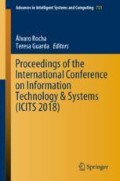Abstract
Mobile Assisted Language Learning consists of using the mobile devices with the purpose of supporting the acquisition of languages. We aim to investigate how different people use mobile applications (apps) on their own initiative and out of a formal educational to improve language skills (Speaking, Listening, Reading and Writing). In this exploratory work, we present how a particular user interacts with 18 different interlocutors, both English native and non-native English speakers in three months using the app Tandem to improve him/her English proficiency. We analyzed these interactions to find (i) usability issues which may interfere on the productive and satisfactory use of the app and (ii) potential learning situations, discussing about the feasibility and the efficiency of mobile learning in the language acquisition. We found 4 types of interventions that promoted some kind of learning and some difficulties related to the app’s usability.
Access this chapter
Tax calculation will be finalised at checkout
Purchases are for personal use only
Notes
- 1.
The data that will be presented are restricted only to English language, although on IP’s (abbreviation used to identify one of the authors of this article who used Tandem) profile description, there is also Spanish language.
- 2.
The service term have several clauses that explain how the relation between the user and the app happens, how far the users and app developers’ obligations do, being, therefore, a rule protocol with rights and duties of both sides.
References
De Souza, C.F.: Aprendizagem sem distância: tecnologia digital móvel no ensino de língua inglesa. Texto Livre Linguagem e Tecnologia 8(1), 39–50 (2015)
Pereira, P.C., Pereira, R.S., Alvez, J.C.: Ambientes virtuais e mídias de comunicação, abordando a explosão das mídias na sociedade da informação e seu impacto na aprendizagem - o uso do WhatsApp como plataforma de m-learning. Revista Mosaico 6(1), 29–41 (2015)
Sung, Y., Chang, K., Liu, T.: The effects of integrating mobile devices with teaching and learning on students’ learning performance: a meta-analysis and research synthesis. Comput. Educ. 94, 252–275 (2016)
Taj, I.H., Sulan, N.B., Sipra, M.A., Ahmad, W.: Impact of mobile assisted language learning (MALL) on EFL: a meta-analysis. Adv. Lang. Literary Stud. 7(2), 76–83 (2016)
Burston, J.: Twenty years of MALL project implementation: a meta-analysis of learning outcomes. ReCALL 27(1), 4–20 (2015)
Gholami, J., Azarmi, G.: An introduction to mobile assisted language learning. Int. J. Manage. IT Eng. IJMIE 2(8), 1–9 (2012)
Burston, J.: Realizing the potential of mobile phone technology for language learning. IALLT J. Lang. Learn. Technol. 41(2), 56–71 (2011)
Leffa, V.J.: Aprendizagem de línguas mediada por computador. In: Leffa, V.J. (Org.) Pesquisa em Linguística Aplicada - Temas e Métodos, pp. 5–30. EDUCAT, Pelotas (2006)
Kukulska-Hulme, A., Norris, L., Donohue, J.: Mobile pedagogy for English language teaching: a guide for teachers. ELT Research Papers 14.07, British Council (2015)
Gonçalves, J.A., Silva, V.: Inglês na Palma da Mão: Possibilidades de Aprendizagem Através dos Dispositivos Móveis Conectados à Internet. Revista de Estudos Acadêmicos de Letras, Cáceres, pp. 49–57 (2014)
Norman, D.A., Nielsen, J.: Gestural interfaces: a step backward in usability. Interactions 17(5), 46–49 (2010)
Nielsen, J.: Usability Engineering. Morgan Kaufmann, EUA, San Francisco (1993)
Silva, F., Silva, J.K., Lucena, M., Gomes, A.: Requisitos para Integração entre Ambientes de Aprendizado e m-Learning: Uma Revisão Sistemática da Literatura. In: Anais do XXVI Simpósio Brasileiro de Informática na Educação (sbie 2015), pp. 269–278. SBC, Porto Alegre (2015)
Author information
Authors and Affiliations
Corresponding author
Editor information
Editors and Affiliations
Rights and permissions
Copyright information
© 2018 Springer International Publishing AG
About this paper
Cite this paper
Freire, F.M.P., da Silva, A.C., Pires, I.M. (2018). Communities of Language Learners: Mobility, Usability and Learning. In: Rocha, Á., Guarda, T. (eds) Proceedings of the International Conference on Information Technology & Systems (ICITS 2018). ICITS 2018. Advances in Intelligent Systems and Computing, vol 721. Springer, Cham. https://doi.org/10.1007/978-3-319-73450-7_60
Download citation
DOI: https://doi.org/10.1007/978-3-319-73450-7_60
Published:
Publisher Name: Springer, Cham
Print ISBN: 978-3-319-73449-1
Online ISBN: 978-3-319-73450-7
eBook Packages: EngineeringEngineering (R0)

